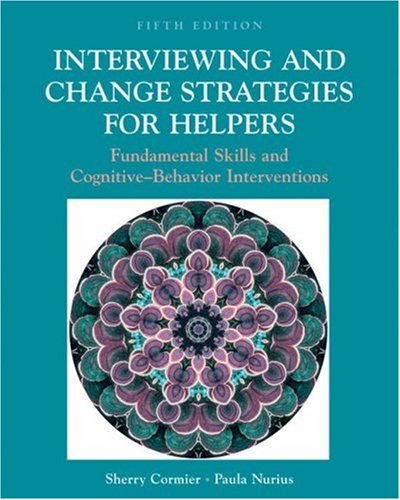Synopsis
This innovative revision of a respected text skillfully combines evidence-based interviewing skills and cognitive-behavioral intervention change strategies applicable to a wide range of client ages, cultural backgrounds, and problems in living. The book interweaves attention to conceptual and empirical foundations with a practical skills emphasis on real-life factors in contemporary settings with diverse clientele. Long commended for its synthesis of up-to-date professional knowledge with case models, learning activities, and guided feedback, INTERVIEWING AND CHANGE STRATEGIES FOR HELPERS adds significant new content on vital topics such as ethics, critical thinking, technology, managed care, client resistance, and cultural diversity. Now in its Fifth Edition, the interdisciplinary team of Cormier and Nurius blend updates and a proven instructional format focusing on knowledge, skills, commitments, and tools at the core of what is needed by today's professional helpers.
About the Authors
Sherry Cormier is Professor Emerita in the Department of Counseling, Rehabilitation Counseling, and Counseling Psychology at West Virginia University in Morgantown, WV. She is a licensed psychologist in the state of West Virginia. Her current research and practice interests are in counseling and psychology training and supervision models, issues impacting girls and women, health, wellness, and stress management.
Paula S. Nurius is a Professor in the School of Social Work at the University of Washington in Seattle and Director of the Prevention Research Training Program funded by the National Institute of Mental Health. Dr. Nurius is a mental health specialist; her research, practice, and teaching addressing perception and responding under conditions of stress and trauma with particular concern for vulnerable populations, conditions of social disadvantage, and fostering prevention and resilience-enhancing interventions. Her current scholarship focuses on life course stress, including interrelationships among violence and adversity exposures, mental health, substance use, and personal/social resources on adaptive and maladaptive development.
"About this title" may belong to another edition of this title.
